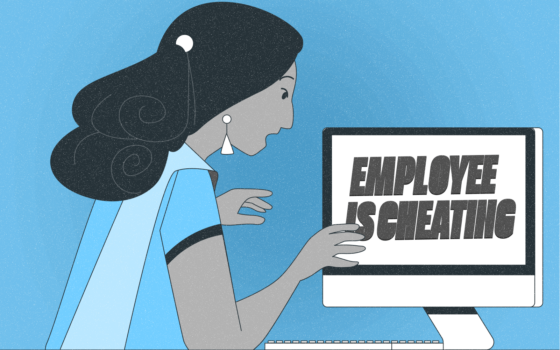Employee Appreciation Day
Employee Appreciation Day: Fostering a Culture of Recognition and Engagement
In the dynamic landscape of modern workplaces, Employee Appreciation Day has emerged as a significant event in the corporate calendar. This annual celebration, typically observed on the first Friday of March, serves as a dedicated opportunity for organizations to express gratitude and recognition towards their most valuable asset – their employees.
While the concept of employee appreciation should ideally be an ongoing practice, this specific day provides a focused platform for companies to go above and beyond in demonstrating their appreciation. It's a time to reflect on the contributions of staff members, celebrate achievements, and reinforce the importance of a positive work culture.
The Origins and Evolution of Employee Appreciation Day
Employee Appreciation Day was first conceptualized in 1995 by Bob Nelson, a founding board member of the Recognition Professionals International. Nelson, recognizing the need for a formalized day of appreciation, sought to create a dedicated occasion for employers to recognize and celebrate their workforce.
Since its inception, the observance has gained significant traction across various industries and countries. What started as a modest proposal has evolved into a widely recognized event, with companies of all sizes participating in diverse ways to honor their employees.
The Importance of Employee Appreciation
The significance of employee appreciation extends far beyond a single day of celebration. Regular recognition and appreciation have been shown to have profound effects on workplace dynamics, employee satisfaction, and overall organizational success. Here are some key reasons why employee appreciation is crucial:
1. Boosts Morale and Motivation
When employees feel valued and appreciated, their morale naturally increases. This boost in morale often translates to higher levels of motivation, leading to increased productivity and a more positive work environment. Appreciated employees are more likely to go above and beyond their regular duties, contributing to the overall success of the organization.
2. Enhances Employee Retention
In an era where talent retention is a significant challenge for many organizations, employee appreciation plays a crucial role. Employees who feel recognized and valued are more likely to stay with their current employer, reducing turnover rates and the associated costs of recruitment and training.
3. Fosters a Positive Work Culture
Regular appreciation contributes to the development of a positive work culture. It creates an atmosphere of mutual respect and recognition, where employees feel supported and valued. This positive culture can lead to improved teamwork, better communication, and a more enjoyable work environment for all.
4. Improves Employee Engagement
Engaged employees are more invested in their work and the success of the organization. Appreciation is a key driver of engagement, as it helps employees feel connected to their roles and the company's mission. Engaged employees are typically more productive, innovative, and committed to delivering high-quality work.
5. Enhances Company Reputation
Organizations known for valuing and appreciating their employees often enjoy a positive reputation in the job market. This can attract top talent and contribute to the company's overall brand image, potentially leading to better business opportunities and partnerships.
Celebrating Employee Appreciation Day: Ideas and Best Practices
While the specific ways of celebrating Employee Appreciation Day can vary widely depending on the organization's size, culture, and resources, here are some popular and effective ideas:
1. Personal Recognition
One of the most impactful forms of appreciation is personal recognition. This could involve:
- Handwritten thank-you notes from managers or executives
- Public acknowledgment of individual achievements
- One-on-one meetings to express gratitude and discuss career aspirations
2. Team-Building Activities
Organizing team-building activities can be an excellent way to show appreciation while fostering camaraderie among employees. Some ideas include:
- Off-site retreats or outings
- Group volunteering activities
- Fun, interactive workshops or games
3. Professional Development Opportunities
Investing in employees' professional growth is a meaningful form of appreciation. Consider:
- Offering additional training or workshop opportunities
- Providing access to online learning platforms
- Sponsoring attendance at relevant conferences or seminars
4. Wellness Initiatives
Promoting employee well-being demonstrates care for their overall health and happiness. Options might include:
- Offering free health screenings or fitness classes
- Providing healthy snacks or catered meals
- Implementing a wellness challenge with prizes
5. Tangible Rewards
While not the only form of appreciation, tangible rewards can be a welcome gesture. Consider:
- Bonus or gift cards
- Extra paid time off
- Company-branded merchandise or personalized gifts
6. Workplace Improvements
Enhancing the work environment can be a lasting form of appreciation. Ideas include:
- Upgrading office equipment or furniture
- Creating new collaborative spaces
- Implementing employee-suggested improvements
Best Practices for Implementing Employee Appreciation Day
To ensure that Employee Appreciation Day is meaningful and effective, consider the following best practices:
1. Make it Inclusive
Ensure that all employees, regardless of their role or department, feel included in the appreciation efforts. This may require tailoring activities or recognition to different teams or locations.
2. Align with Company Values
Tie appreciation efforts to the company's core values and mission. This reinforces the organization's culture and helps employees see how their work contributes to broader goals.
3. Gather Feedback
Solicit input from employees about how they would like to be appreciated. This can be done through surveys or informal conversations, ensuring that the appreciation efforts resonate with the workforce.
4. Extend Beyond a Single Day
While Employee Appreciation Day is a focal point, aim to create a culture of ongoing recognition. Use the day as a launchpad for year-round appreciation initiatives.
5. Personalize the Experience
Recognize that different employees may value different forms of appreciation. Offer a variety of options or allow employees to choose how they'd like to be recognized.
6. Involve Leadership
Ensure that appreciation comes from all levels of the organization, particularly top leadership. This demonstrates a company-wide commitment to valuing employees.
Challenges and Considerations
While Employee Appreciation Day is generally positive, there are some challenges and considerations to keep in mind:
1. Avoiding Tokenism
Ensure that appreciation efforts are genuine and not perceived as a token gesture. Consistent, year-round appreciation should complement the special day.
2. Balancing Expectations
Manage expectations around the scale and nature of appreciation efforts. Be transparent about what the company can offer and why certain choices are made.
3. Remote and Distributed Teams
With the rise of remote work, ensure that appreciation efforts are inclusive of all employees, regardless of their location. This may require creative solutions for virtual celebrations or recognition.
4. Budget Constraints
Not all companies have large budgets for employee appreciation. Focus on meaningful, low-cost options that still convey sincere gratitude.
5. Cultural Sensitivity
In global organizations, be mindful of cultural differences in how appreciation is expressed and received. What works in one country or culture may not be appropriate in another.
The Future of Employee Appreciation
As the workplace continues to evolve, so too will the approaches to employee appreciation. Some trends to watch include:
1. Personalization through Technology
Advanced HR technologies may enable more personalized and timely recognition, tailored to individual preferences and achievements.
2. Focus on Mental Health
With increasing awareness of mental health issues, appreciation efforts may increasingly focus on supporting employees' mental well-being.
3. Sustainability-Linked Appreciation
As environmental concerns grow, appreciation efforts may align more closely with sustainability initiatives, such as offering eco-friendly rewards or organizing environmental volunteering activities.
4. Skill-Based Recognition
Appreciation may become more closely tied to skill development and career progression, with recognition linked to specific competencies or learning achievements.
Conclusion
Employee Appreciation Day serves as a valuable reminder of the importance of recognizing and valuing the contributions of employees. However, true appreciation should extend beyond a single day, becoming an integral part of an organization's culture. By fostering a continuous environment of recognition, companies can enhance employee satisfaction, engagement, and overall organizational success.
As workplaces continue to evolve, the methods and approaches to employee appreciation will undoubtedly change. However, the fundamental principle remains constant: acknowledging the human element in business and expressing genuine gratitude for the efforts and dedication of employees. In doing so, organizations not only boost morale and productivity but also create a more positive, fulfilling work environment for all.
Ultimately, Employee Appreciation Day is not just about celebrating employees; it's about reinforcing the value of human capital and nurturing a culture where every individual feels respected, valued, and motivated to contribute their best. As we move forward, let this day serve as a catalyst for ongoing appreciation and recognition, fostering workplaces where employees thrive and organizations flourish.


